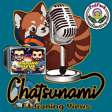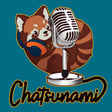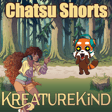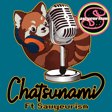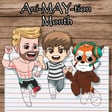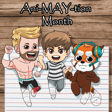
Tabletop Mysteries! A Conversation with Eureka: Investigative Urban Fantasy
In this episode, Satsunami is joined by Addison and Ash of the hit indie tabletop game Eureka: Investigative Urban Fantasy. Join us as we discuss what it means to create a tabletop game. How has tabletop RPG culture evolved over the years? Has the impact of Dungeons and Dragons affected the way we look at TTRPGs? And what is the secret behind Eureka: Investigative Urban Fantasy? All of this and more in this exciting episode of Chatsunami!
Check them out via the following links:
Social Media:
Eureka: Investigative Urban Fantasy game:
- anim-ttrpg.itch.io
- https://anim-ttrpg.itch.io/eureka-urban-investigative-fantasy-ttrpg-haunted-house-murder-mystery-module
Donation links for Eureka:
This podcast is a member of the PodPack Collective, an indie podcasting group dedicated to spreading positivity within the podcast community. For further information, please follow the link: https://linktr.ee/podpackcollective
Where to find us:
Support Us:
Patrons:
Super Pandalorian Tier:
- Battle Toaster
- Sonia
- Ghostie
- Cryptic1991
Red Panda Tier:
- Greenshield95
- Danny Brown
- Aaron Huggett
Free Members:
- Middle-aged Bodcast
- IRIDYSCENZIA
- Rob Harvey
- Aaron (Super Pod Saga)
- Billy Strachan
Use my special link zen.ai/chatsunami and use chatsunami to save 30% off your first three months of Zencastr professional. #madeonzencastr
Create your podcast today! #madeonzencastr
Stay safe, stay awesome and most importantly, stay hydrated!



